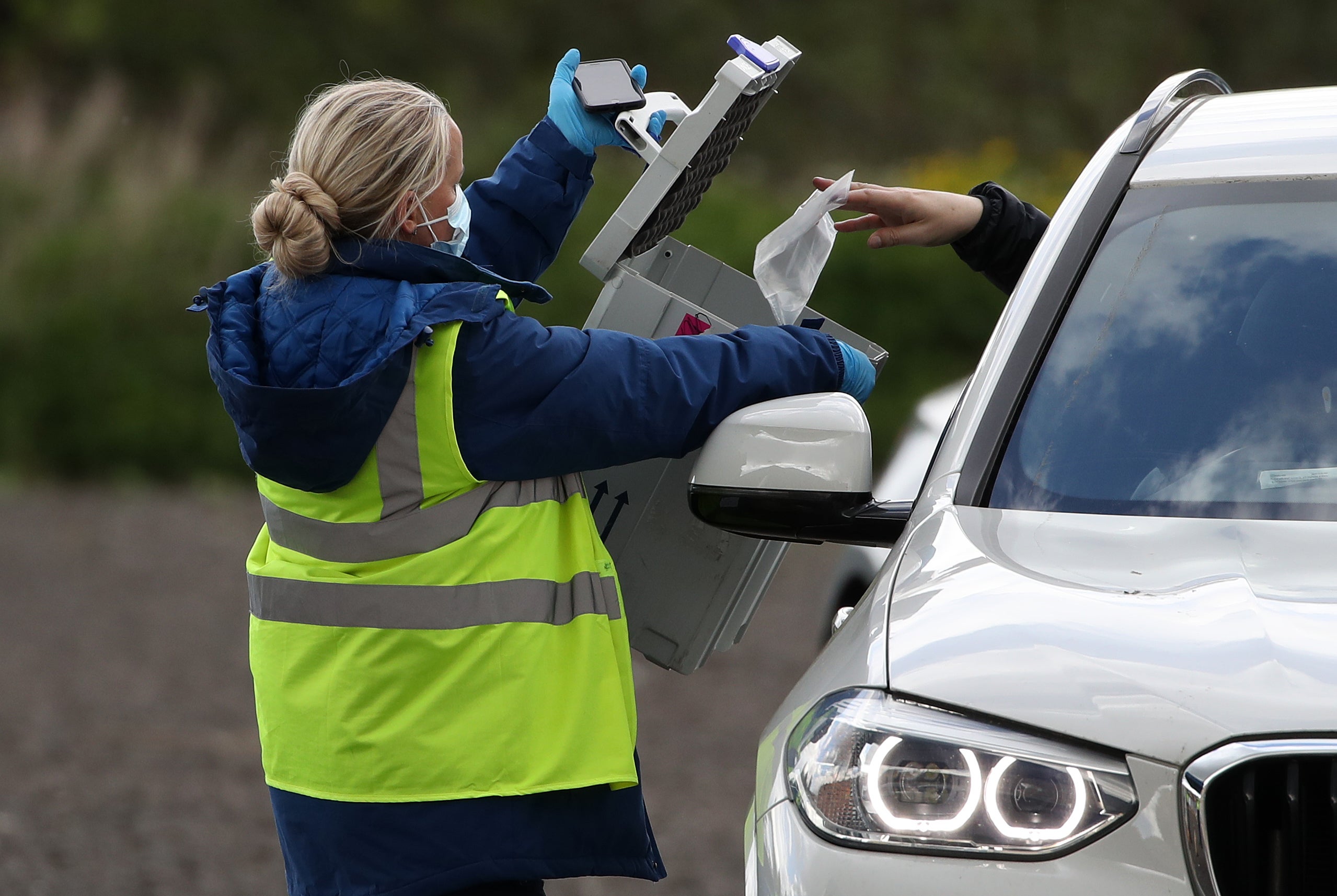PCR test result waiting times should return to normal, says Leitch
National clinical director Jason Leitch apologised for delays in getting PCR test results at Christmas.

Your support helps us to tell the story
From reproductive rights to climate change to Big Tech, The Independent is on the ground when the story is developing. Whether it's investigating the financials of Elon Musk's pro-Trump PAC or producing our latest documentary, 'The A Word', which shines a light on the American women fighting for reproductive rights, we know how important it is to parse out the facts from the messaging.
At such a critical moment in US history, we need reporters on the ground. Your donation allows us to keep sending journalists to speak to both sides of the story.
The Independent is trusted by Americans across the entire political spectrum. And unlike many other quality news outlets, we choose not to lock Americans out of our reporting and analysis with paywalls. We believe quality journalism should be available to everyone, paid for by those who can afford it.
Your support makes all the difference.Waiting times to receive PCR Covid test results should return to between 24 and 36 hours, Scotland’s national clinical director Jason Leitch has said.
Speaking to Gary Robertson on Good Morning Scotland, Mr Leitch described delays in the testing system against a background of 8,252 positive results on December 25, 11,030 on December 26 and 10,562 on December 27.
It has been reported that some people in Glasgow have had to wait four days, or 96 hours, for a PCR test result.
The usual wait is 24 hours and can be less depending on the time at which the PCR test is taken.
Asked why people had had to wait such a long time for test results, Mr Leitch said it had just been scale.
“It has just been big because quite a lot of people went for testing before Christmas, in order to try and get Christmas celebrations that were safe if they had symptoms or it they were contacted.
“I apologise for that, I am sorry if people had to wait a little bit longer.
“We think the acute problem, the immediate problem is resolved.
“My understanding was, yesterday (Monday) speaking to test and protect leaders, that the backlog was cleared and they were back to somewhere between 24 and 36 hours for pretty much all the tests.
“Postal ones take a bit longer just because it takes a while to get through the mail and back.
“Fundamentally, yes, if there is a massive increase in PCR testing, then you do have to make some choices about prioritisation, about high-risk individuals and locations, but we are not at that stage yet.
“We need to wait to see the numbers smooth out a little, to give the non-statistical phrase, just because Christmas testing behaviours are different, but if you look back to the day when Omicron first reared its head in Scotland, we had one case on November 28, we had 2,332 other cases, pretty much all Delta
“Now we have four times that and it’s three and a bit weeks later, nearly four weeks later, so, it has quadrupled in three weeks which is exactly what we said would happen, I am afraid.
Speaking about the numbers in hospital, Mr Robertson said that up until Christmas Eve, 42 people with Omicron had been admitted to hospital, which on the face of it seemed very small.
Mr Leitch replied: “We have got used to these numbers haven’t we.
“Before the pandemic our baseline intensive care beds for the whole country, was about 200.
“So that’s two fifths of our intensive care base being made up by Covid cases, but you are right, that is down on our high numbers of well over 100 at some of these waves.
“The hospitalisation numbers are about the same proportions, somewhere about 500 or so, and have been declining with Delta.
“They are not rising at the rate they rose with Delta, which is excellent news and confirms, maybe, the data we saw a few days ago before Christmas about this being a milder disease, but milder does not mean mild.
“We should not overreact, we should absolutely not, but nor, and you would expect me to say this, should we underreact, because if you have four times as many cases, even with a quarter of the severity, you are going to end up with the same number of people needing ventilated and the same number dying.
“We have got no evidence at all, despite what you might read in some social media postings, none at all, that this disease is four times less severe than the Delta disease.
“We need more time.
“We need to follow our actual people, our positives over a period of time, to see what happens to them and what the wall of vaccination will do, because we are not powerless in this fight.
“If you can vaccinate 75,000 people a day, every day counts.”